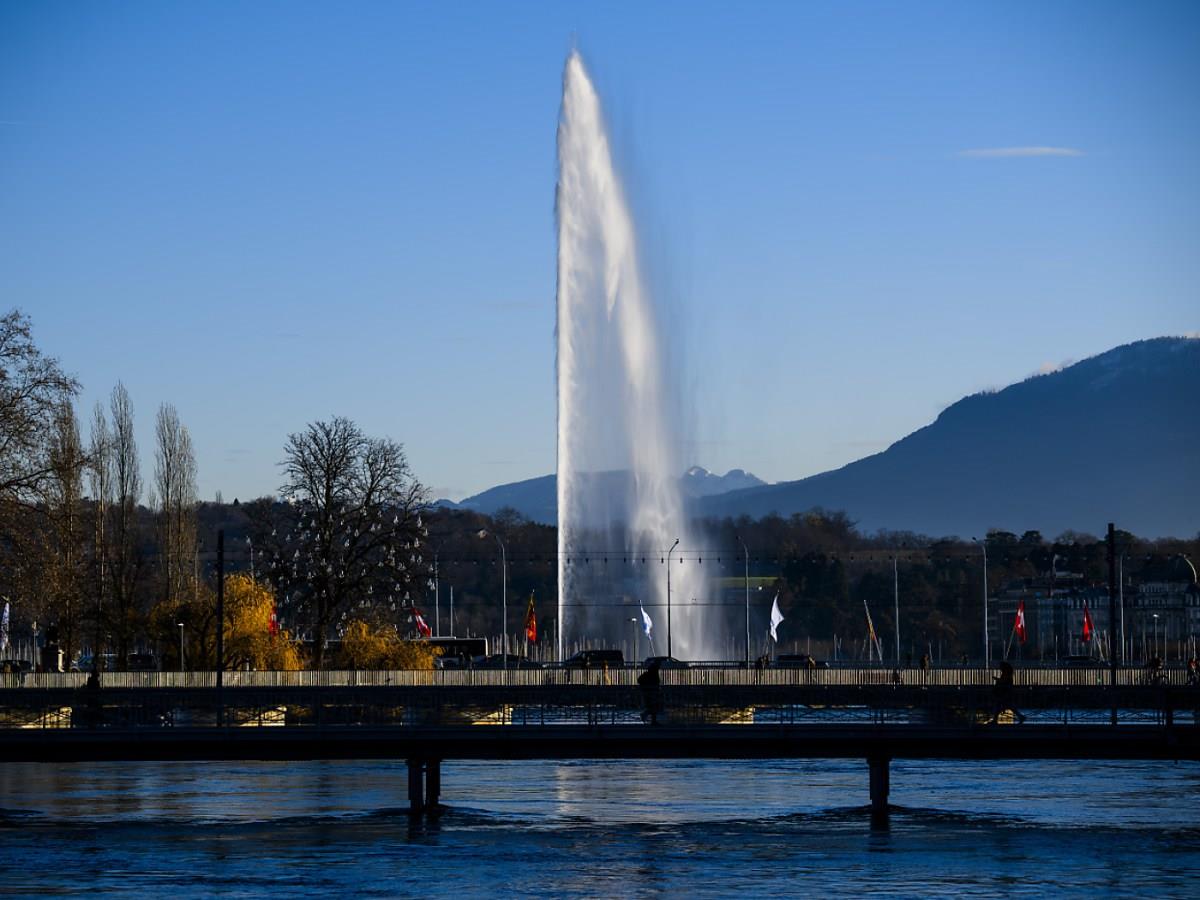
Geneva Hosts Iran Nuclear Talks Before Return Of Trump
-
Français
fr
Nucléaire iranien: pourparlers à Genève avant le retour de Trump
Original
Read more: Nucléaire iranien: pourparlers à Genève avant le retour de Trum
+Get the most important news from Switzerland in your inbox
These talks are taking place less than two months after equally discreet negotiations between Iran and representatives of the three European countries in the same city, at a time when the West is concerned about the progress of Iran's nuclear programme.
The meeting is being held with the utmost secrecy, and neither the names of the participants nor where the diplomats from the four countries will be meeting have been revealed.
“Iranian Deputy Foreign Minister Majid Takht-Ravanhchi and his E3 (Germany, France and the UK) counterparts met on Monday evening,” Iran's ISNA news agency reported.
“They discussed issues of mutual interest, including negotiations for the lifting of sanctions, the nuclear issue and the worrying situation in the region,” the agency added without giving further details.
Later, Iran's Deputy Foreign Minister for International Affairs, Kazem Gharibabadi, described the discussions as“serious, frank and constructive”.
“We discussed ideas involving certain details in the areas of sanctions lifting and nuclear that are necessary for an agreement,” he said in a message on X.
'Agreed to continue our dialogue'“The parties agreed that negotiations should resume and that in order to reach an agreement, all parties should create and maintain an appropriate atmosphere. We have agreed to continue our dialogue,” he added.
+ Swiss government under pressure to toughen stance on Iran
The German foreign ministry had earlier told AFP that“these are not negotiations”. They are only“consultations”, Iran added.
The talks cover a“wide range of subjects”, said Iranian Foreign Ministry spokesman Esmaeil Baqaei on Monday.
For Tehran,“the main objective of these talks is to lift sanctions against Iran”, Baqaei said on Monday, adding that Iran was also“listening to the topics that the other parties want to discuss”.
Finding a diplomatic solutionThe meeting is“a sign that the E3 countries are continuing to work towards a diplomatic solution to Iran's nuclear programme, the progress of which is extremely problematic”, said the French foreign ministry.
Tehran announced in early December that it was starting to feed new centrifuges at the Fordo site, one of the country's largest, in central Iran,“with the eventual effect of significantly increasing the rate of production of enriched uranium to 60%”, according to the International Atomic Energy Agency (IAEA).
In a letter to the UN Security Council dated December 6, France, Germany and the UK expressed their“grave concern” and urged the Islamic Republic“to put an immediate end to its nuclear escalation”.
The three European countries raised the possibility of using the mechanism for reimposing sanctions against Iran“to prevent it from acquiring nuclear weapons”.
UN Security Council Resolution 2231, which endorsed the 2015 agreement between Iran and the E3 countries as well as the US, Russia and China, expires in October 2025, ten years after the deal came into force.
+ Iranian protests test Switzerland's special status with Iran
'Main strategic challenge'On January 6, French President Emmanuel Macron described Iran as the“main strategic and security challenge” in the Middle East, while warning against“accelerating” its nuclear programme.
Iran's head of diplomacy, Abbas Araghchi, recently indicated that his country would take steps to reassure“the peaceful nature” of its nuclear programme in exchange for the lifting of sanctions.
According to the IAEA, Iran is the only non-nuclear-weapon state to enrich uranium to 60%, close to the 90% needed to make an atomic weapon.
The Iranians defend their right to nuclear power for civilian purposes, in particular energy production, and deny that they want to acquire atomic weapons, a position strongly doubted by Western countries.
The talks come at a time when Iran's allied groups in the Middle East are greatly weakened after months of war with Israel.
Trump's returnAdded to this is the return to the White House, on January 20, of Donald Trump, the architect of a so-called“maximum pressure” policy towards Iran during his first term (2017-2021).
Tensions around Iran's nuclear programme soared under Trump's presidency, when the US withdrew from the 2015 agreement that offered Tehran sanctions relief in exchange for limiting its nuclear ambitions.
Translated from French by DeepL/ts

Legal Disclaimer:
MENAFN provides the
information “as is” without warranty of any kind. We do not accept
any responsibility or liability for the accuracy, content, images,
videos, licenses, completeness, legality, or reliability of the information
contained in this article. If you have any complaints or copyright
issues related to this article, kindly contact the provider above.


















Comments
No comment